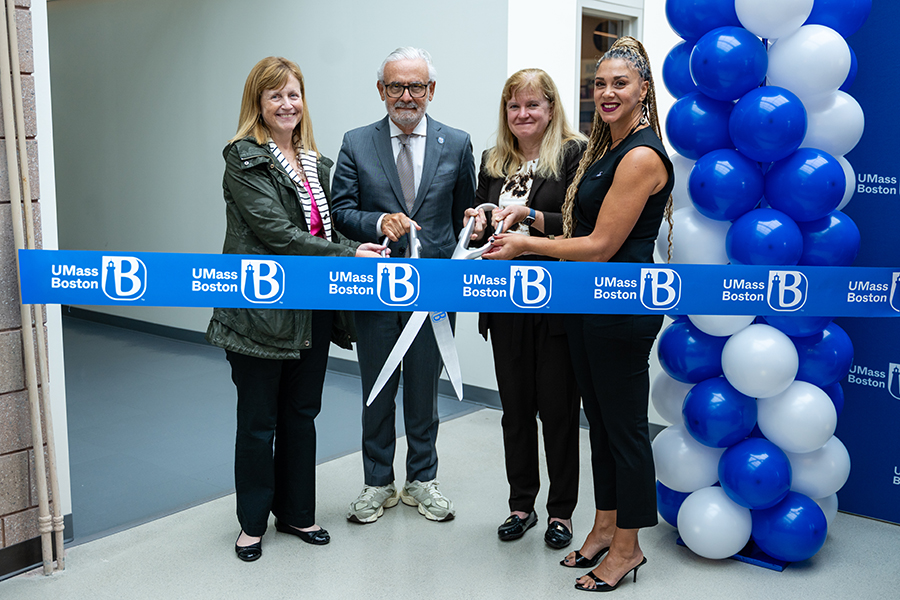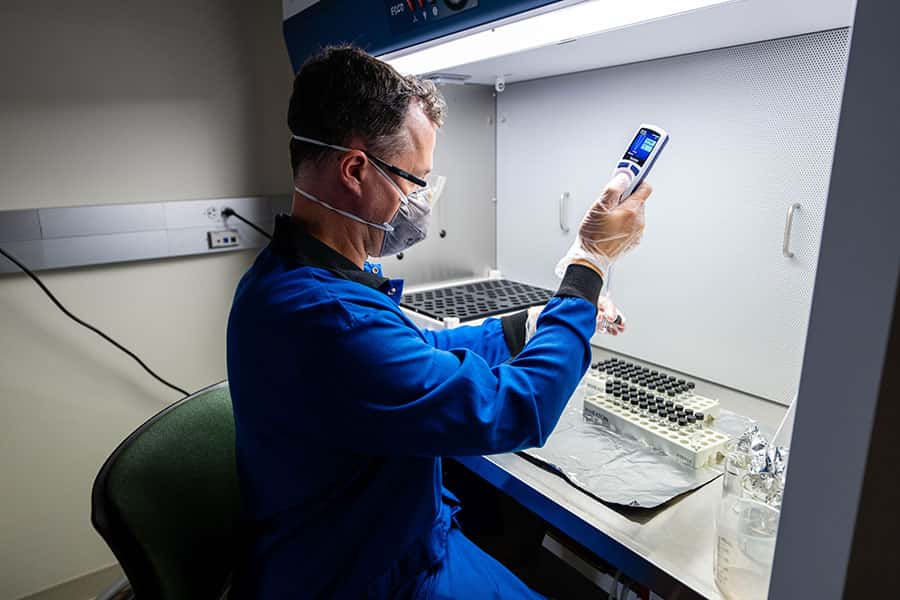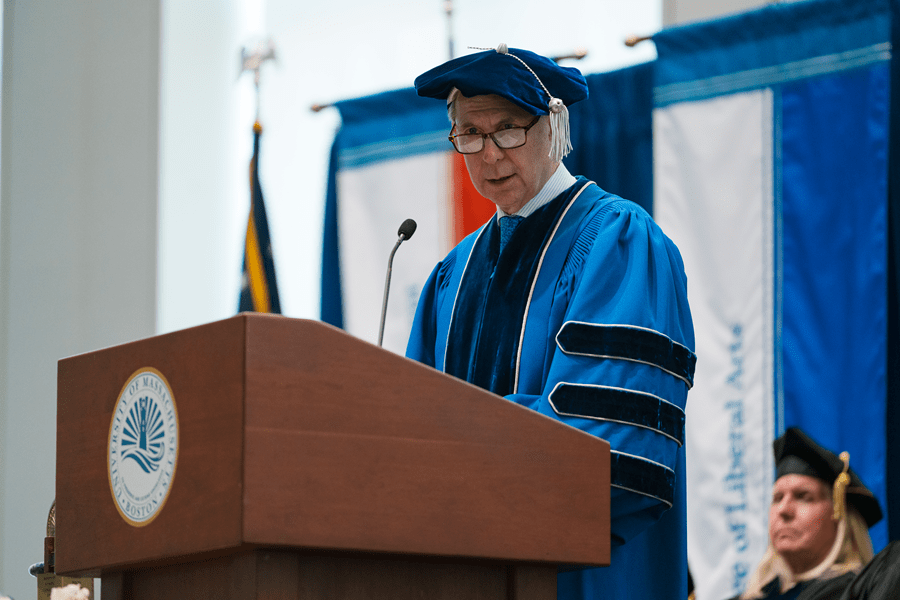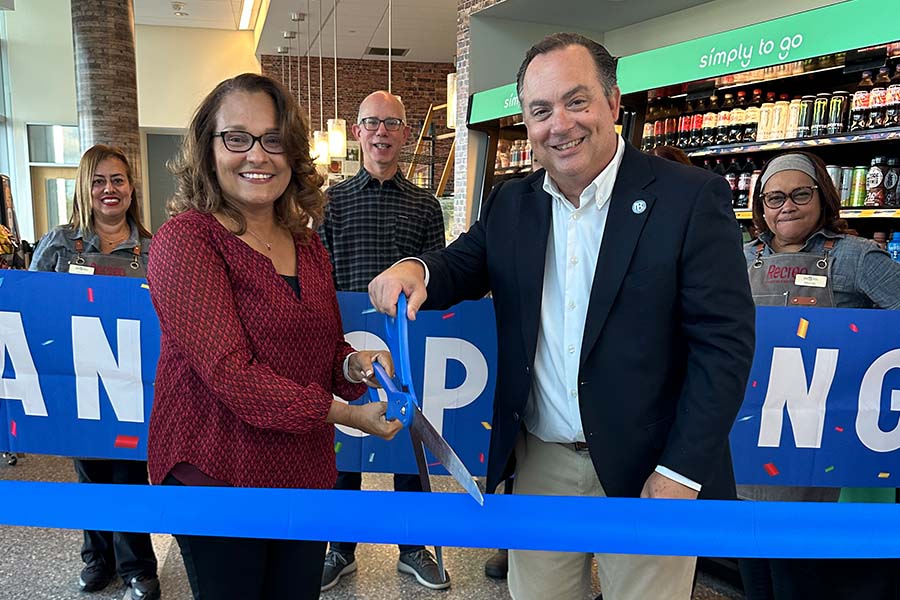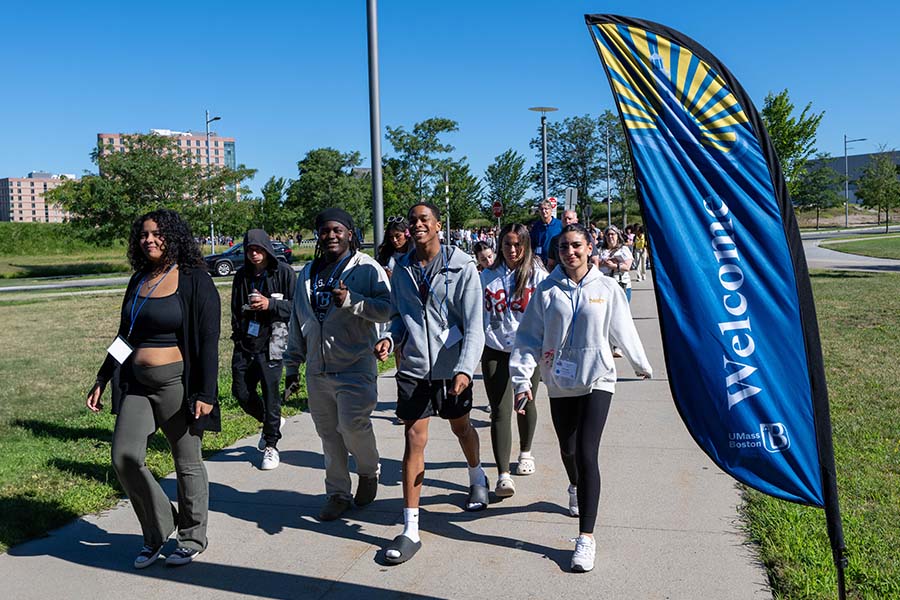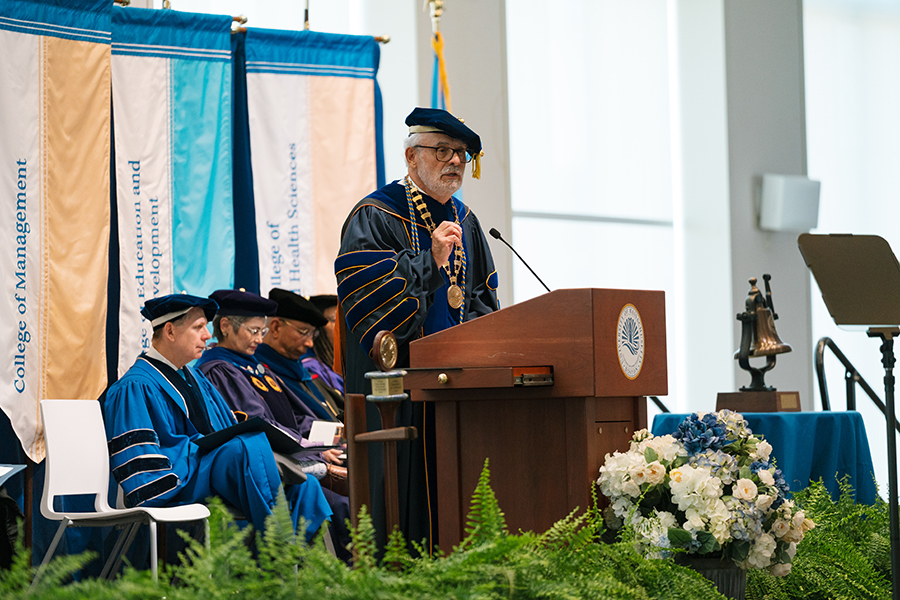Networked AI Lab Established at UMass Boston
Located in the College of Science and Mathematics, the Networked AI Lab will seek solutions for complex societal problems while preparing the next generation of engineers and computer scientists in the emerging interdisciplinary field of networked artificial intelligence (AI).
As autonomous technologies continue to advance, the networked AI research lab is introducing a unique approach to these systems. One that emphasizes collaboration between different types of autonomous vehicles. Self-driving cars equipped with laser-based LiDAR and drones supplied with 360-degree cameras work together, combining unique perspectives to develop a stronger and more intelligent network than any one vehicle could achieve alone.
Bo Sheng, principal investigator and associate professor of computer science, leads research activity in the newly launched lab. The work that takes place in the lab addresses significant challenges in transportation safety, emergency response, environmental monitoring, and defense applications by advancing the science of collaborative autonomous systems.
“The idea is similar to how human teams with different areas of expertise collaborate together by sharing complementary insights,” said Sheng. “Through collaboration, they build a more complete understanding than any one person could achieve alone.” Sheng’s research applies this principle to artificial intelligence and autonomous systems by developing advanced communication protocols and data integration techniques.
The researchers pair sensing technologies with autonomous cars and drones. The cars are equipped with light detection and ranging systems (LiDAR) for creating precise 3D maps, depth cameras for spatial understanding of the environment, and regular cameras that capture visual information from multiple angles. Meanwhile, the drones provide 360-degree visibility with a combination of regular and depth cameras.
This multi-modal sensing approach enables each vehicle to perceive its surroundings in different ways. When these vehicles communicate with each other, they create a networked intelligence that surpasses what any single vehicle could achieve independently. For example, a drone's 360-degree aerial view might identify traffic patterns that cannot be detected from the car's perspective, while the car's high-precision LiDAR measurements might detect subtle environmental details that enhance the drone's observations.
“What distinguishes our approach is the sophisticated way these diverse systems collaborate despite using different AI models and generating varying types of data,” Sheng explained. “Each vehicle processes information using algorithms tailored to its own sensors, but through our research, they learn to exchange and integrate the most relevant information coherently.”
The Networked AI lab is supported through a $439,695 award from the U.S. Department of Defense. Among those helping drive this research forward is Allen Yang, a fourth year PhD candidate working with Professor Sheng. With Yang’s expertise in federated learning, a method that allows multiple devices to train AI models collaboratively without sharing data, Yang examines how autonomous systems can exchange information efficiently while preserving security and computational performance.
By combining innovative research with inclusive education, the Networked AI Lab is shaping a future where technology and opportunity advance forward together.
Latest University News
- UMass Boston Unveils Major Upgrades to Clark Athletic CenterA New Era of Beacon Athletics Begins with Modernized Facilities and Enhanced Fan Experience
- Nitrogen In Fossils Indicates Climate Resilience in Pacific Ocean UpwellingBy studying the shells of ancient plankton, Jesse Farmer and his colleagues have explored the state of the tropical Pacific during the warm Pliocene Epoch. Their study, published this week in the journal Science, shows that, counter to prior claims of permanent El Niño under a warmer climate, the nutrient upwelling that sustains fisheries in modern times was also strong in the Pliocene when the climate was warmer.
- In Convocation Keynote, University of Massachusetts General Counsel David Lowy Calls for Civil DiscourseFollowing a prestigious judicial career, the Honorable David Lowy (retired) now serves as the General Counsel for the University of Massachusetts. During the 2025 UMass Boston convocation ceremony, Lowy encouraged the incoming class to be open to hearing new ideas, because they will be the ones to reinvent civil debate.
- UMass Boston Holds Grand Opening for New Coffee Shop in the ISC CaféUMass Boston celebrated its new partnership with Recreo Coffee at a ribbon-cutting ceremony last week.
- UMass Boston Received Insight Into Academia 2025 Higher Education Excellence and Distinction (HEED) AwardUMass Boston has received the 2025 Higher Ed Excellence in Diversity (HEED) Award from Insight Into Academia magazine.
- Chancellor Calls for Resilience and Responsibility at Fall ConvocationAt UMass Boston’s 2025 Fall Convocation, Chancellor Marcelo Suárez-Orozco urged the university community to meet today’s challenges with resolve, resilience, and responsibility—calling resilience not just a virtue, but “an imperative.”








